‘There are two things that are important in politics,’ said Mark Hanna, the American senator, in 1895. ‘The first is money and I can’t remember what the second one is.’ In 2020, Hanna’s maxim could be updated: the second thing is being an old white guy from New York.
The presidential election is 36 weeks away and it looks as if the winner will be one of three men. There’s the Manhattan billionaire incumbent, Donald Trump, 73, whose fortune is estimated at $3 billion (he claims eight). There’s the socialist outsider from Brooklyn, Bernie Sanders, who is 78 and worth $2.5 million. And last but not least is 78-year-old Mayor Mike Bloomberg, the richest fruit in the Big Apple, weighing in at a whopping $64 billion.
Money, money, money. Bloomberg and Sanders are currently vying for the Democratic nomination. Thanks to his vast army of small-dollar donors, Sanders has a $350 million war chest. Bloomberg, meanwhile, is dropping the cash equivalent of a nuclear bomb on the American democratic process. He has still not entered the primary race, and he’s already spent $400 million. He’s said that he is willing to put up $2 billion.
Neither Bloomberg nor Sanders were Democrats three years ago. Both are attempting a hostile takeover of the Democratic party. Sanders wants to complete the left-wing revolution he started five years ago; Bloomberg’s campaign is more like an aggressive corporate buyout. The Democratic machine isn’t happy with either candidate, but can’t seem to settle on a credible alternative — former Vice President Joe Biden’s terrible campaign has been a particularly cruel humiliation. Party bigwigs are therefore starting to warm to Mike and his billions.
Political operatives are thrilled at the incoming bonanza. Bloomberg has hired just about every Democratic consultant he can get his hands on. Republican strategists also talk enthusiastically about the power of Bloomberg’s wallet, possibly in part so that they can justify billing their party more in the coming months. Bloomberg has also launched one of the biggest television and digital advertising campaigns in political history. On TV and across social media he is bombarding Americans with snazzy ads that present him as the man who can get the job done.
Investment doesn’t always equate to success in politics, of course: Hillary Clinton spent $768 million of other people’s money in 2016, and look where that got her. But the Bloomberg blitz will be unlike any political process seen before.
Another thing that matters in American politics today is data. Bloomberg has masses of that. He built his global financial-media empire on information. And he’s been buying up politically useful ‘engagement platforms’ for years. In the coming weeks, he’s expected to drive a data juggernaut through the Democratic primary. African-American voters will be bombarded with messages about Bloomberg’s criminal justice reform. Young progressives and white liberals will be peppered with messages about Bloomberg’s support for LGBQT rights. More conservative Democrats will be told, over and over, that only Bloomberg has what it takes to beat Trump.
In recent years, Democrats have started to fear that the Republicans now have the edge in internet politics. Trump’s campaign manager is Brad Parscale, who was his digital media director in 2016. He has built a vast Trumpist online operation and is already spending huge sums. But the sheer weight of Bloomberg’s spend will be hard to match. ‘Quantity takes on a quality all of its own,’ says Trump’s former chief strategist, Steve Bannon.
If successful, Bloomberg’s data-led campaign could reveal a creepy double-standard in much of the news media. When Barack Obama used sophisticated social-media marketing in 2012, commentators said he was harnessing ‘the power of friendship’. When Trump did the same sort of thing in 2016, they said he had been brainwashing voters with Vladimir Putin’s help. This year, if Bloomberg deploys his massive arsenals of private information to defeat Trump, the same pundits will do nothing but praise his ‘positive’ message.
Bloomberg’s money buys him more than powerful advertising. It buys influence. He and his advisers scoff at suggestions that he is trying to acquire the White House by financial means. But how else should we describe his campaign? Bloomberg, who was born in Boston but cut his teeth on Wall Street, has been a very rich man since the 1980s. He has a highly advanced and extensive system of patronage, especially in the cities. Since 1997, he’s given away some $10 billion, much of it to worthy causes in America’s municipalities. On the one hand, that’s very generous. On the other, it now means he can rely on the support of — or at least the lack of opposition from — all sorts of civil-rights groups, thinktanks or charities across the country. He has much of progressive America in his pocket.
Bloomberg has taken to calling himself the ‘un-Trump’ — the sort of clunky political branding that only the most expensive consultants can create. But Bannon calls him a ‘Republican oligarch’ — and you don’t have to be a national populist to see his point. Like Trump, Bloomberg has been a Republican, an independent and a Democrat — depending on what was expedient to him at the time. More than Trump, perhaps, he fits the traditional left-wing caricature of a right-wing villain: a plutocratic media-finance baron with terrifying levels of access to private information. He’s never been recorded saying ‘grab ’em by the pussy’, but he has reportedly made all manner of similarly lewd remarks — and been taken to court by a number of female employees.
He’s a short-tempered man who lacks charisma and charm. He tries to make up for those inadequacies by exhibiting an authoritarian tendency: he’s a health fascist who as Mayor of New York not only persecuted smokers but introduced official calorie counting and even tried to bring in a ridiculously un-American cap on sugary drinks. Bloomberg brought down crime by intensifying Rudy Giuliani’s ‘stop and search’ policies to such an extent that he is widely accused of racial profiling and harassing young black people on the streets. He has apologised for that, yet he’s also been accused of hushing up other criticisms of his record. For instance, in 2015 the Center For American Progress (CAP) allegedly cut a 4,000-word section of a report which detailed the treatment of Muslim residents in Bloomberg’s New York. Was it mere coincidence that Bloomberg had given CAP almost $2 million? And if you think Trump is kompromated by Russia, wait until you read about Bloomberg and Beijing.
In an age of popular distrust of elites, on left and right, Bloomberg seems an odd choice. He ticks many progressive boxes: anti-gun, pro-abortion, pro-same-sex marriage, committed to fighting climate change. His worldview is exactly what you hear at those international summits for the managerial elite. Perhaps that’s because he speaks at and sponsors so many of them.
In 2017, he described Brexit as the ‘single stupidest thing any country has ever done’. He was particularly cross because Bloomberg LP had just opened its big European headquarters in London, poor fellow. ‘It is really hard to understand why a country that was doing so well wanted to ruin it,’ he said.
Which leads to an intriguing question: how might Boris Johnson deal with President Bloomberg? We all know about the Prime Minister’s friendship with Trump, now strained by Britain’s decision to use the Chinese telecoms giant Huawei for its 5G infrastructure. Yet Boris and Bloomberg have had much closer ties. The two men struck a bond when they were the mayors of London and New York. They worked together on transatlantic schemes to co-ordinate policies in the two great cities. It’s also worth noting that the PM’s girlfriend Carrie Symonds, when she isn’t briefing against Dominic Cummings, works on the Bloomberg Foundation’s Vibrant Oceans Initiative. Maybe Boris, who was born in New York, won’t turn out to be Trump’s poodle after all. He could be Bloomberg’s labradoodle.
Let’s not get ahead of ourselves. To take on Trump, Bloomberg must first knock out the other candidates in the so-called ‘moderate lane’ — Pete Buttigieg, Amy Klobuchar and Joe Biden. Then, assuming Elizabeth Warren doesn’t have a surprising revival on his left, he will have to defeat the formidable Bernie Sanders to win the nomination.
For now, things seem to be falling into place for Bloomberg. He’s still a dreary public speaker and his campaign team are desperately training him to be more exciting on the debate stage. But his unusual strategy of not entering the race until Super Tuesday — 3 March, when 14 states vote — is starting to look like a clever waiting game. Thanks to his endless advertising, he has surged into third place in the national polls. Centrist Democrats still worry that the various moderates will cannibalise each other and thus gift the nomination to the insurgent Sanders — just as establishment Republicans did to Trump in 2016. But that fear could help Bloomberg. His campaign can say that Democrats and independents must get behind Mike in order to save America from either Trumpist nationalism or dangerous radical socialism. The Sanders 2020 campaign is strong, but it lacks the enthusiasm it possessed four years ago: his voter turnout so far has been down. Experts say that, with a booming economy in America, Bernie’s anti-capitalist crusade has lost its zing. He could begin to lose momentum as money-bags Bloomberg thunders in.
Bloomberg would be more trusted than Sanders to keep the economic good times going. He will focus on the President’s frivolous character. Democrats like the idea that, because Trump only respects money, Bloomberg is the only candidate rich enough to intimidate him.
Trump has already taken to teasing Bloomberg about his stature. He calls him a 5ft 4in ‘mass of dead energy’. Anti-Trumpists interpret the President’s trolling as a sign of fear. But then anti-Trump people love to say he is quaking when he isn’t. There was much excitement in liberal circles last week after Bloomberg snapped back at Trump on Twitter: ‘We know many of the same people… Behind your back they laugh at you & call you a carnival barking clown.’ The pundits cheered: that’s how you stand up to a bully like Trump, they said. On Monday, Bloomberg baited Trump by asking why he ‘wants to run against Bernie so badly’. ‘Mini Mike,’ replied Trump, ‘No, I would rather run against you!’ To which Bloomberg retorted: ‘See you in November.’
Fight fight fight! Bloomberg vs Trump promises to be the nastiest election ever: two billionaire titans in a social-media death match. Are we not entertained?
Got something to add? Join the discussion and comment below.
Get 10 issues for just $10
Subscribe to The Spectator Australia today for the next 10 magazine issues, plus full online access, for just $10.
spectator.co.uk/podcast Freddy Gray and American historian Bill Barnard on Bloomberg vs Trump.
You might disagree with half of it, but you’ll enjoy reading all of it. Try your first month for free, then just $2 a week for the remainder of your first year.


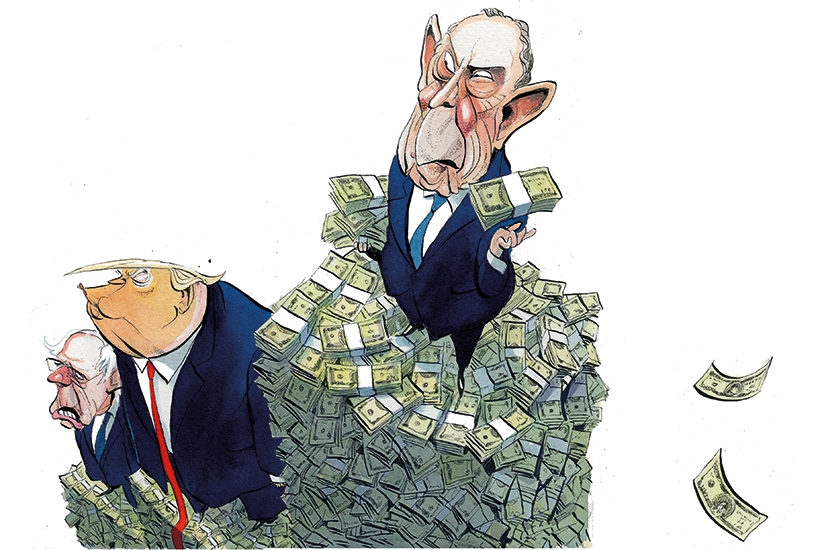
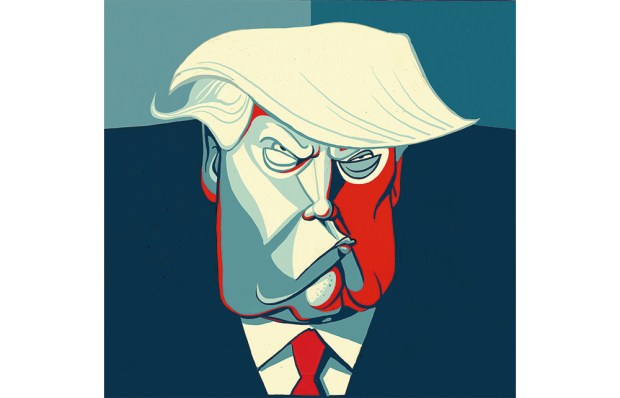
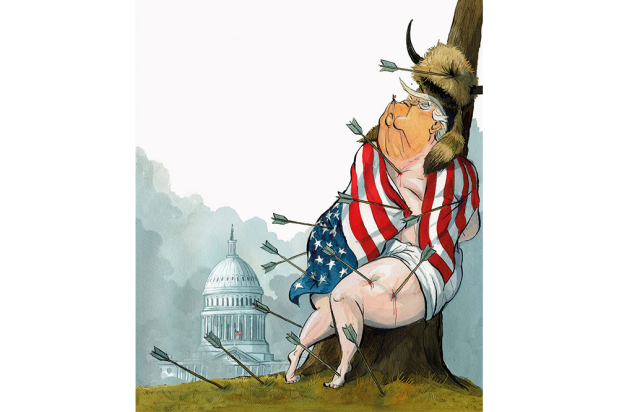
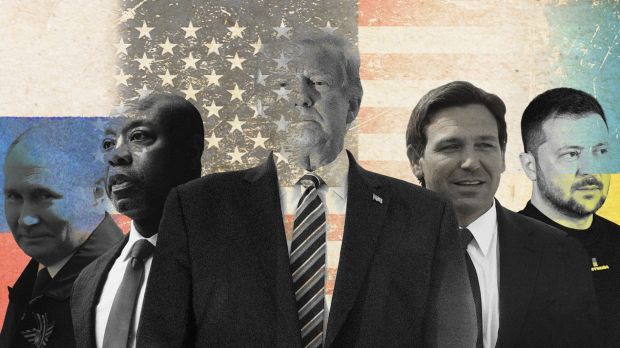
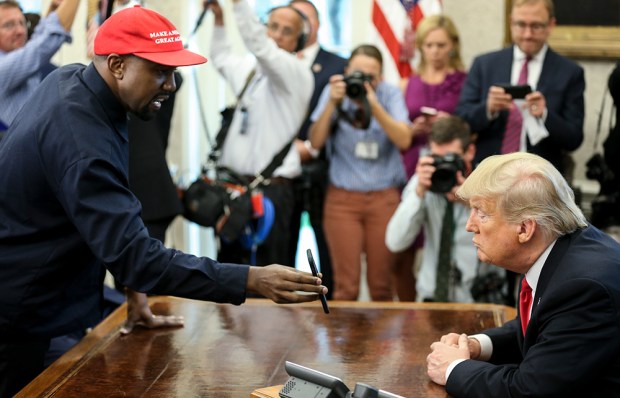
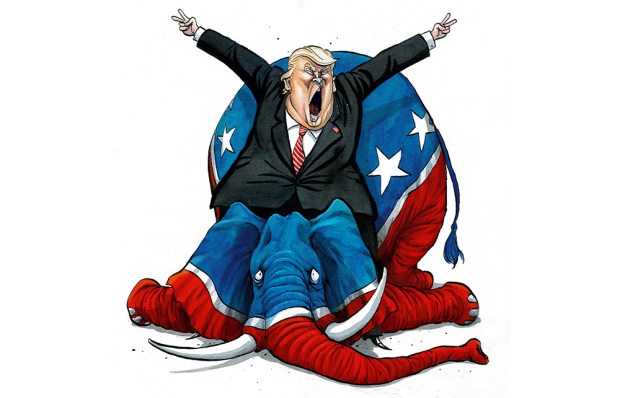







Comments
Don't miss out
Join the conversation with other Spectator Australia readers. Subscribe to leave a comment.
SUBSCRIBEAlready a subscriber? Log in